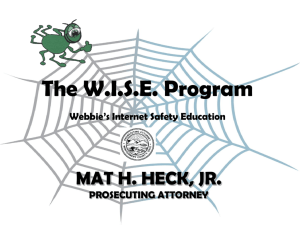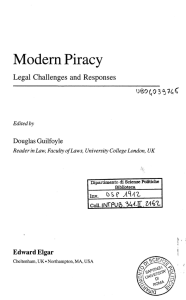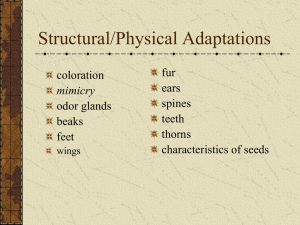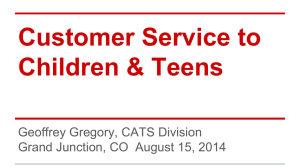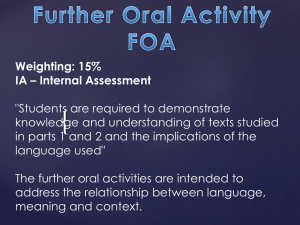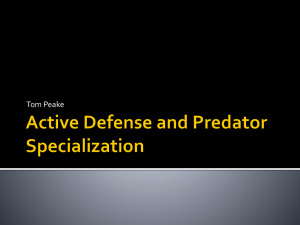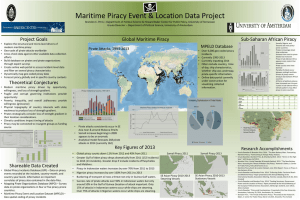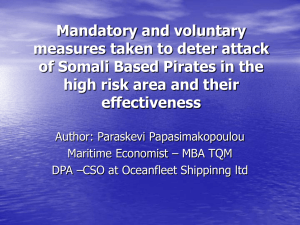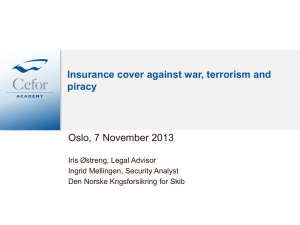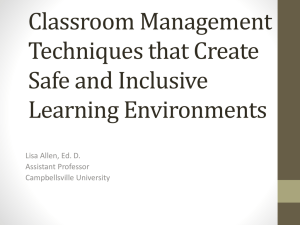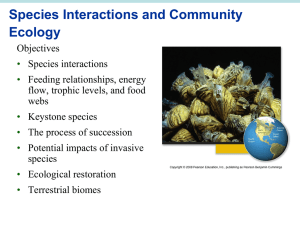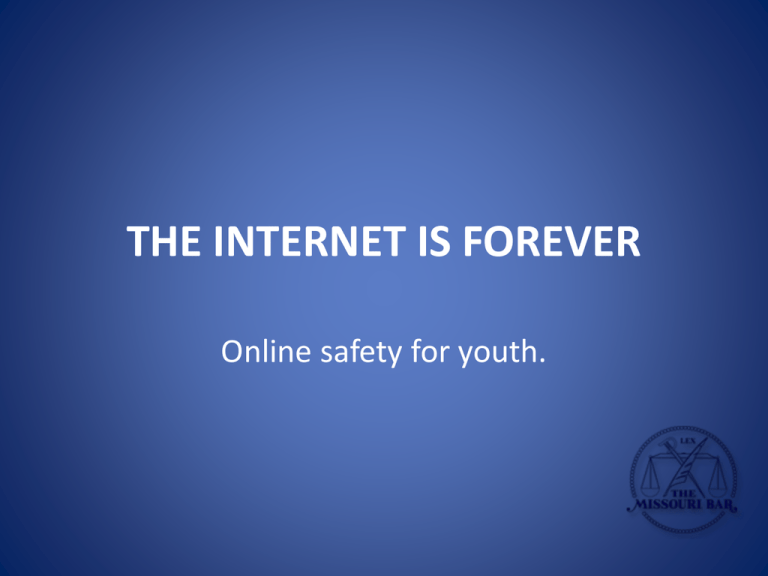
THE INTERNET IS FOREVER
Online safety for youth.
How do they access the Internet?
• Desktop and laptop computers located at
home, friend’s houses, work, stores and
schools.
• Cell phones
• Tablet Devices
• Video game systems (XBOX, PS3, IPad, ITouch
Wii)
– All video game systems today have the ability to
connect to the internet.
THE STATS
• 94% of teens use the Internet
• 84% of online teens have a social networking
profile (MySpace, Facebook).
– 46% of those profiles are publicly accessible
• 85% have cell phones
– 88% know how to send a text message
– A cell phone is not necessary anymore to text
CYBERBULLYING
THE STATS
Percent of students who reported being
cyber bullied
52%
Teens who have experienced cyberthreats
online
33%
Teens who have been bullied repeatedly
through their cell phones or the internet
25%
Teens who do not tell their parents when
cyber bullying occurs
52%
Percent of teens who have had
embarrassing or damaging pictures taken
of themselves without their permission,
often using cell phone cameras
11%
Bureau of Justice Statistics, US Department of Health and Human Services,
Cyberbylling Research Center
CYBERBULLYING
Using computers, the internet, text messaging,
email, Facebook or Twitter to intimidate,
threaten, or hurt others
EXAMPLES OF CYBERBULLYING
Spreading rumors
Posting negative comments
Talking smack in video games
Posting embarrassing photos
Sending negative text messages
Recording and posting embarrassing moments
Threatening someone with harm
WHO IS A CYBERBULLY?
Is your child a cyberbully?
1. Lacking interest and involvement with other
kids?
2. Acting like his or her group is superior.
3. Bragging that he/she uses the internet to play
practical jokes.
4. Making fun of other kids.
5. Getting in trouble at school for inappropriate
computer use.
WARNING SIGNS
Warning signs of children being bullied or bullying
other children:
1. Complaining that other children or a group of
children do not like them.
2. Preoccupation with friendship concerns.
3. Poor self-esteem: “I’m not as good as others.”
4. Not wanting to take part in school activities.
5. Spending a lot of time on the computer.
6. Sensitivity about online activities.
CYBERBULLYING
Consider monitoring internet and cell phone
use:
1. Periodically review internet bookmarks,
history files, temporary Internet files and
keyword history.
2. Review phone use – text, photos, etc.
3. If the temporary internet files are cleared,
what does that mean?
PIRACY
IT IS MORE THAN JUST MUSIC BEING
PIRATED
PIRACY: MORE THAN JUST MUSIC
PIRACY:
The unauthorized use of another's production,
invention, or conception especially in
infringement of a copyright
PIRACY: MORE THAN JUST MUSIC
WHAT ARE YOUR CHILDREN DOWNLOADING?
– MUSIC
– BOOKS
– SOFTWARE
– TV SHOWS
– APPS (IPHONE, ANDROID)
– VIDEO GAMES FOR XBOX, PS3, NINTENDO WII
PIRACY: MORE THAN JUST MUSIC
HOW ARE THEY DOING IT?
PIRACY: MORE THAN JUST MUSIC
CONSEQUENCES:
• There are significant financial and legal penalties for
software piracy. Illegal distribution and use of software
can result in prison terms of up to five years and felony
charges with fines up to US $250,000.
• In civil litigation against those who illegally distribute
software, recovery can be made of the higher of a
victim’s lost profits, the infringer's profits, or statutory
damages of up to $150,000 per product infringed, plus
attorney fees.
YOU CAN BE FOUND LIABLE FOR YOUR CHILD’S ACTIONS
Brianna LaHara’s Story
• 12 year old honors
student.
• Downloaded music
from Kazaa.
• Her mother paid for
Kazaa so she thought it
was ok.
• She was sued, and her
mother settled the case
for $2,000 and an
apology.
Jammie Thomas-Rasset
• Mother of four in Minnesota.
• She was accused of downloading
24 songs from Kazaa.
• Jammie told the Court that she did
not download the songs.
• At the conclusion of her second
trial, she was fined 1.9 million
dollars or $62,500 per song.
• It would have cost $24 to legally
download the 24 songs on iTunes.
Fredrik Neij, Gottfrid Svartholm,
and Peter Sunde
• The Pirate Bay was a website
that helped people
throughout the world steal
copyrighted material.
• The website was closed, and
the founders of Pirate Bay
website were sentenced to
jail time and ordered to pay
6.7 million dollars.
PIRACY: MORE THAN JUST MUSIC
LOOK AT WHAT YOUR CHILD IS DOING
AND MONITOR THE SOFTWARE
INSTALLED.
YOUR KIDS ARE HACKERS
• To gain access
to a computer
illegally
• Guessing
email and
Facebook
passwords is a
form of
hacking
• Jailbreaking an
IPhone
Sarah Palin’s
Email Hacked
• In 2008, David Kernell, a 24 year old college
student guessed the email password of Sarah
Palin.
• He took her emails and distributed them
without her permission.
• He was convicted of unauthorized access to a
protected computer and destroying records to
impede a federal investigation.
• He served 11 months in jail.
Florida man hacks celebrity emails
• Christopher Chaney, 35 year old Florida
resident, hacked the email accounts to
Scarlett Johansson, Christina Aguilera, and
Mila Kunis
• In 2012, he plead guilty to nine felony counts
including unauthorized access to a computer
and wiretapping.
• He faces up to 60 years in prison
• He guessed the celebrities’ email passwords
by studying their life in magazines and
twitter
Hacking Facebook Accounts
• In 2010, a California teen received a text message
with a classmate’s email password
• He logged into her email and changed her
Facebook password
• He then changed her profile description, sent
messages to male classmates, and posted on her
wall in a vulgar manner
• He was charged with identity theft
• He was found guilty and put in juvenile detention
HACKING AND PIRACY
Consider monitoring internet and cell phone use:
1. Periodically review internet bookmarks, history
files, temporary Internet files and keyword
history.
2. Review phone use – text, photos, etc.
3. If the temporary internet files are cleared, what
does that mean?
4. Review software installed on your child’s
computer, video game system, phone.
GOOD TEXTS BAD TEXTS
Texting has become the defacto form of
communication for children under the age of 16
with access to cell phones.
GOOD TEXTS/BAD TEXTS
What are inappropriate types of
communications?
- “Sexting”
- Bullying
- Harassment
GOOD TEXTS/BAD TEXTS
VERY REAL LEGAL CONSEQUENCES FOR
SEXTING:
1. CRIMINAL PROSECUTION FOR DISTRIBUTION AND
POSSESSION OF CHILD PORNOGRAPHY.
2. CRIMINAL PROSECUTIONG FOR ENTICEMENT OF A
CHILD IF UNDER 15 YEARS OLD.
3. LIFETIME REGISTRATION AS A SEX OFFENDER. IF
CONVICTED
GOOD TEXTS/BAD TEXTS
• CONSIDER MONITORING YOUR CHILD’S TEXT
MESSAGES.
• ADD DETAILED BILLING TO YOUR ACCOUNT TO
MONITORY WHO THEY ARE TEXTING.
• ALLOW PHONE USE DURING SET HOURS IN
PUBLIC AREAS.
ONLINE PREDATORS
1 IN 6 TEENS, AGES 12 TO 17, HAVE RECEIVED A
SEXUAL SUGGESTIVE OR NUDE IMAGE OF
SOMEONE THEY KNOW ON THEIR CELL PHONE.
ONLINE PREDATORS
VICTIMS OF ONLINE PREDATORS ARE
ADOLESCENTS BETWEEN 13 AND 17.
IMPORTANT TO START SAFE HABITS EARLY.
ONLINE PREDATORS
LIE ABOUT WHO THEY ARE, WHERE THEY LIVE
AND WHAT THE DO. THEY GROOM.
ONLINE PREDATORS
VICTIMS OF ABUSE OFFLINE ARE MORE LIKLEY
TO ENGAGE IN RISKY BEHAVIORS ONLINE. THE
NEED FOR ATTENTION AND ACCEPTANCE.
ONLINE PREDATORS
BOYS WHO QUESTION SEXUALITY ARE MOST
VUNERABLE ONLINE.
25% OF ALL INTERNET RELATED SEX CRIME
VICTIMS ARE BOYS.
ONLINE PREDATORS
WHAT DO YOU DO?
CALL THE
CYBERTIPLINE
1-800-843-5678
ONLINE PREDATORS
WHEN DO YOU CALL:
1. ANYTIME ANYONE SENDS YOUR CHILD
PHOTOS OR VIDEOS CONTAINING OBSCENE
CONTENT.
2. ANYTIME ANYONE SPEAKS TO YOUR CHILD IN
A SEXUAL MANNER.
3. ANYTIME A STRANGER ASKS YOUR CHILD TO
MEET IN PERSON.
ONLINE PREDATORS
HOW TO PROTECT YOU CHILD:
1. COMMUNICATION.
2. MONITOR ONLINE ACTIVITIES.
3. SHOW YOUR CHILD HOW TO USE
TECHNOLOGY RESPONSIBLY.
SUMMARY
ESTABLISH INTERNET AND PHONE RULES FOR YOUR
CHILDREN:
1. WHAT SITES THEY VISIT.
2. WHO THEY CAN TALK TO.
3. WHO MUCH TIME THEY CAN SPEND ONLINE.
LEARN WHAT THEY ARE DOING AND WITH WHAT.
SUMMARY
CONSIDER COMPUTER USE IN A COMMON
AREA OF THE HOUSE NOT SECLUDED IN A
BEDROOM OR BASEMENT.
SUMMARY
LEARN THE CAPABILITIES OF YOUR CHILD’S CELL
PHONE
TURN OFF WEB ACCESS?
CHECK PARENTAL CONTROLS.
SUMMARY
MOST IMPORTANTLY:
COMMUNICATE. FIND OUT WHAT THEY ARE
DOING.
CALL THE CYBERTIPLINE: 1-800-843-5678


